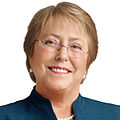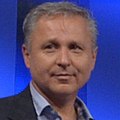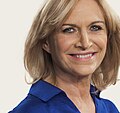Presidential election | |||||||||||||||||||||
17 November 2013 (first round) 15 December 2013 (second round) | |||||||||||||||||||||
| Registered | 13,573,143 | ||||||||||||||||||||
|---|---|---|---|---|---|---|---|---|---|---|---|---|---|---|---|---|---|---|---|---|---|
| Turnout | 49.35% (first round) 41.98% (second round) | ||||||||||||||||||||
| |||||||||||||||||||||
| |||||||||||||||||||||
| 17 November 2013 | |||||||||||||||||||||
All 120 seats in the Chamber of Deputies 61 seats needed for a majority | |||||||||||||||||||||
This lists parties that won seats. See the complete results below. | |||||||||||||||||||||
| 17 November 2013 | |||||||||||||||||||||
20 of 38 seats in the Senate | |||||||||||||||||||||
This lists parties that won seats. See the complete results below. | |||||||||||||||||||||
 |
|---|
General elections were held in Chile on 17 November 2013 to elect the president, all 120 members of the Chamber of Deputies, 20 of the 38 members of the Senate and 278 members of regional boards. All elected members would serve a four-year term, aside from the Senators would serve for eight years. All the newly elected authorities began their terms on 11 March 2014.
Contents
- Timeline
- Presidential primaries
- Presidential candidates
- Unsuccessful candidacies
- Opinion polls for presidential race
- First-round scenarios
- Second-round scenarios
- Presidential campaign
- Debates
- Results
- President
- Senate
- Chamber of Deputies
- Regional boards
- Reactions
- Analysis
- Notes
- References
- External links
In the presidential election, former president Michelle Bachelet fell short of the absolute majority needed for an outright win. In the runoff election, held on 15 December, she beat former senator and Minister of Labor Evelyn Matthei with over 62% of the vote, with turnout significantly lower than in the first round. This marked the first time two women faced each other in a runoff in Chilean history. [1]
In the parliamentary elections, the New Majority coalition (backing Bachelet's candidacy) won back control of both chambers of Congress, winning 12 of the 20 contested seats in the Senate, for a total of 21 out of 38 total seats, and 67 of the 120 seats in the Chamber of Deputies.
These were the first presidential and parliamentary elections in which all eligible voters were automatically enrolled, and where voting was no longer mandatory (compulsory voting was reintroduced in 2022). Members of the regional boards were directly elected for the first time.



















